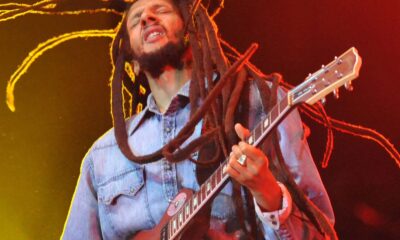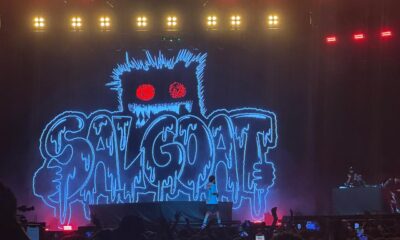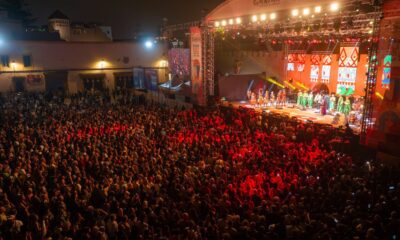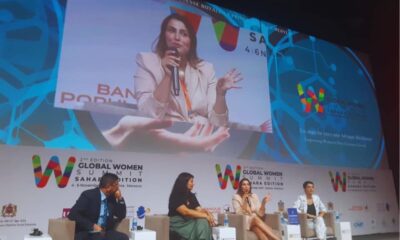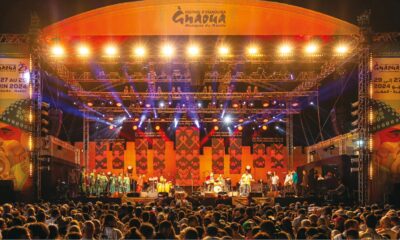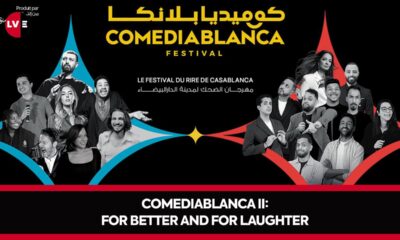Business
Moulay Ahmed Alami: “Beyond jazz, the festival seeks to balance live performance and spectacle”
Jazzablanca, an unmissable cultural event in Morocco, blends jazz, pop, soul, and world music. Moulay Ahmed Alami, its director, reveals his vision: rooting the festival in Casablanca’s identity, sustaining its free stage, and propelling Moroccan talents internationally, while overcoming logistical and financial challenges.
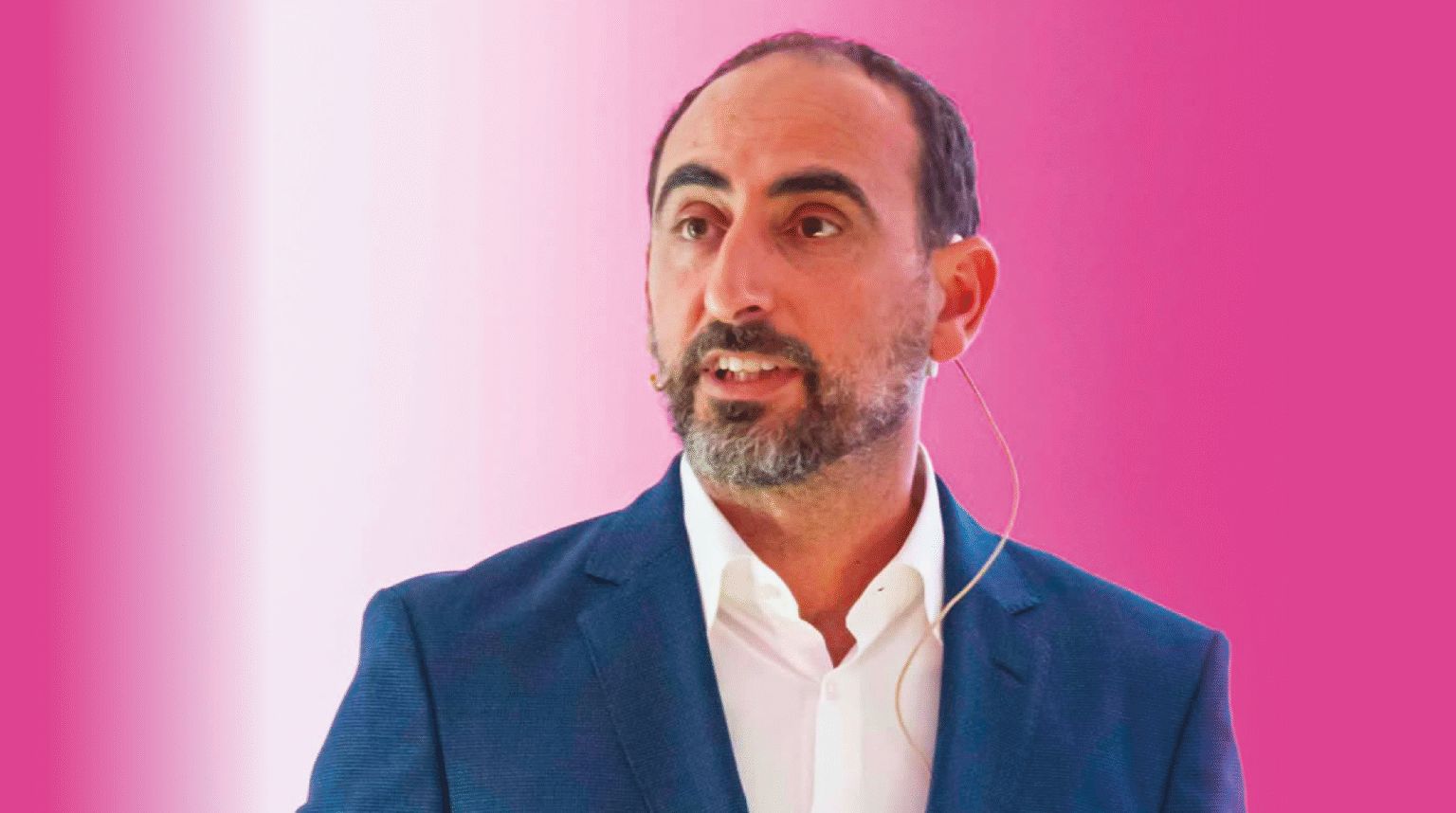
A passionate producer, music lover, and bold visionary, Moulay Ahmed Alami leads the essential and highly anticipated Jazzablanca. Since 2013, he has infused eclecticism and quality, transforming the event into a festive experience at Anfa Park, while supporting local talents and free shows.
Jazzablanca has become a must-attend event in Morocco and the region. What is your long-term vision for the festival?
The festival stands out for its human dimension, a characteristic we are keen to preserve. However, there is still much to develop, especially regarding the engagement of Casablanca’s public and creating a true symbiosis between the city and the festival.
The goal is for Casablanca to live to the rhythm of Jazzablanca during the event, whether it lasts three, nine, or ten days—the final formula remains to be defined. To achieve this, collective work with local elected officials, the region, the wilaya, and the Ministry of Culture is essential. This requires joint mobilization to make Jazzablanca a true representative of the city. And we are determined to push in this direction!
The free stage, although accessible to all, has not yet reached its full potential. For several years, it has highlighted young Moroccan talents, playing a springboard role for these artists. However, this remains insufficient. We want to program renowned artists, but their cost represents a challenge for the free part of the festival.
While the economic model of paid concerts is now viable, that of the free part still needs balancing, notably through partner involvement.
What have been the main obstacles encountered and what are your aspirations to develop a sustainable economic model?
One of the main challenges for the coming years is to establish a stable economic model for the free part of the festival.
This involves gathering elected officials around the Jazzablanca project and strengthening cultural sponsorship, notably through banking foundations like Saham Bank, which supports the Nouveau Souffle stage, or the BMCI Foundation, which previously supported events at Place des Nations Unies. These partnerships are essential to develop a quality stage, like that of Parc de la Ligue Arabe…
The move to Anfa Park in 2022 marked a turning point for Jazzablanca, with a rethought format and a more immersive experience… What were the main challenges of this transition, and how has this new space transformed the festival-goers’ experience?
Since 2022, the festival’s move to Anfa Park marked a major turning point. This change, decided in the midst of the Covid crisis exit and with only two months of preparation, represented a logistical and financial challenge. Moving from a hippodrome to a little-known park in a developing neighborhood raised concerns among partners and the public.
However, this transition allowed for a more immersive experience, with a capacity adapted to about 10,000 people. Flows, security, and the overall experience were rethought to offer a moment of collective happiness, the very essence of a festival. Logistics remain a constant challenge, as shown by the 2018 anecdote when a plane breakdown in Cuba almost compromised Roberto Fonseca’s concert…
Thanks to teamwork with Air France, the artists were able to be transported on time, going on stage directly after their arrival. These unforeseen events, although stressful, are part of the festival adventure and strengthen the determination to offer a quality experience.
What will be the highlights of the 2025 edition?
For 2025, we are delighted to welcome the Black Eyed Peas, whose arrival was finalized after an initial offer in March and a signing in December. This bold choice embodies a major stylistic opening, promising an explosive finale, worthy of fireworks.
At the same time, Macklemore, another world-renowned headliner, will bring his international stature. Among other highlights, we will find emblematic artists such as Kool and The Gang, Seal, Hindi Zahra, as well as Ibrahim Maalouf, who promises a festive concert with fanfare.
The group Parcels, acclaimed at Coachella, will also set the stage on fire. Finally, the Scène 21 will spotlight a new generation of jazz and pop artists, embodying the vitality and diversity of contemporary creation.
Jazzablanca is known for its eclecticism, mixing jazz, pop, soul, funk, and world music. How do you balance this eclecticism while preserving the festival’s jazz DNA?
Scène 21, for example, offers a peaceful atmosphere at sunset, ideal for discovering world artists, before giving way to more dynamic performances on the main stage… Beyond jazz, the festival seeks to balance live performance and spectacle, while remaining true to its artistic essence.
Scène 21, for example, highlights talents like Faraj Suleiman or Ezra Collective, selected for their virtuosity and energy on stage. These choices result from attentive listening by the team, who follow musical trends and bookers’ proposals, while taking into account logistical and financial constraints.
You aim to make Jazzablanca a platform to internationalize Moroccan musical production…
This requires permanent venues, because festivals alone are not enough. Live artists, unlike the new rap generation, need to perform regularly to export themselves. The lack of concert halls in Casablanca, a city of 5 million inhabitants, is a brake.
Initiatives like L’Boulevard, 20 years ago, were precursors, but these spaces must be multiplied to create a virtuous circle: stages for artists, artists for stages, and an audience educated to consume culture.
A budget range…
The festival’s budget is about 60 million dirhams, an amount we assume with transparency. This funding relies on the trust of sponsors, partners, and the public who buy tickets. Our goal is to offer them an experience worthy of this investment, while convincing those who still hesitate to join the adventure.
You described Jazzablanca as your “annual diet,” an adventure that makes you lose a few kilos each edition…
Each edition is a birth, accompanied by anxiety about not meeting expectations. However, thanks to a dedicated team, the festival continues to grow, while remaining faithful to its mission: bringing together diverse audiences around collective energy and shared happiness.

